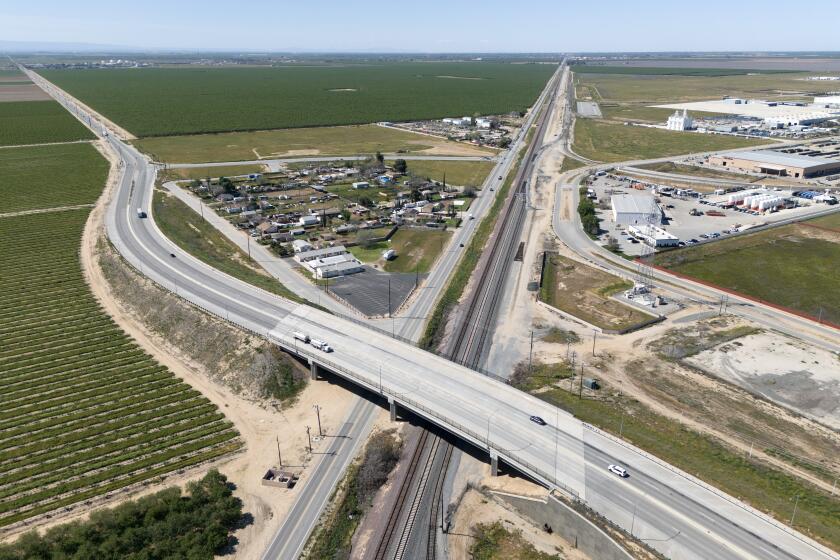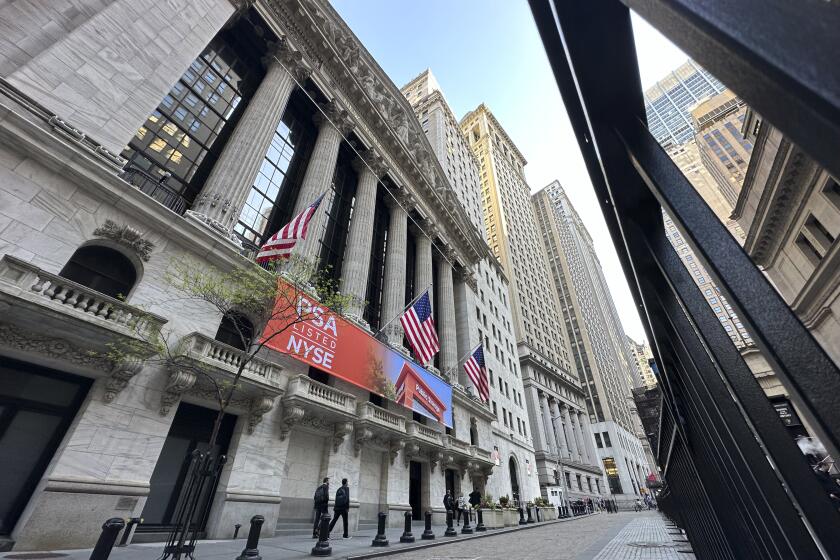Global financial regulators to decide on stronger bank capital rules
Global financial regulators are working this weekend to settle on new rules that could make future bank bailouts less likely but could also make borrowing more expensive.
The central bank officials are meeting in the Swiss city of Basel to decide on changes in regulations governing how much capital should be held by banks on their balance sheets. Such rules help determine the amount of money a bank can lend and thus both its soundness and its profitability.
U.S. and British regulators have been pushing for stricter requirements to rein in risky lending and provide more of a cushion in bad times so that big banks won’t need taxpayer-financed rescues.
European central bankers, particularly those from Germany, have fought the strictest proposals, fearing their banks would be hurt the most.
Although banks in the U.S. and Britain appear to be better prepared to deal with strengthened capital rules than their counterparts in continental Europe, American bankers say strengthening the rules could reduce their profits more than the financial regulatory overhaul passed by Congress earlier this summer will.
Banking lobbyists says beefed-up capital requirements would drive up borrowing costs for consumers by making less money available for loans.
“Money can either be stored or lent out,” said Scott Talbott, a lobbyist for the Financial Services Roundtable, a group of large U.S. banks. “The less that is lent out, the safer the institution, but the downside is that there is also less money available for loans.”
Officials at the Federal Reserve and the Federal Deposit Insurance Corp. have said banks are grossly overstating the potential effect on consumers and ignoring the protection that the new rules will provide for the larger economy.
“If you don’t have capital to absorb losses you have to go to the government, and that’s what happened,” FDIC chief Sheila Bair said in an interview this summer. “If you are making profits, the profits won’t be as great, but when the bust comes you will have a bigger cushion.”
An international bank lobbying group, the Institute of International Finance, has said the new rules could noticeably slow economic growth in the U.S. and Europe.
The Committee on Banking Supervision, a group of central bankers from around the world, is expected to propose the new rules on Sunday or Monday. The expected proposal has already been dubbed the Basel III accord because it is the third set of such requirements decided on by the Basel-based committee.
The proposal would then go before the Group of 20 meeting of leading financial powers in South Korea in November for approval. The requirements would not be binding on individual governments, but most countries have based their regulations on the Basel group’s consensus.
The proposal to be announced early next week will set the minimum amount of high-quality capital that a bank has to have on its books for every dollar of loans that is in risk of not being paid back. In general, high-quality capital is the total amount that a bank has collected from selling common stock plus the bank’s net earnings over its lifetime, minus the cumulative amount the firm has paid out in dividends.
Under previous Basel accords, banks have generally had to hold $2 of such high-quality capital for every $100 of relatively risky loans and other assets. The new rules are expected to require them to hold around $7 of these assets for every $100.
The rules also are expected to narrow the definition of high-quality capital and expand the definition of risky assets.
The 7% minimum is less than U.S. regulators had sought and many big banks had feared. Most of the biggest American banks appear to be safely above the 7% limit, with firms like Goldman Sachs Group Inc., Citigroup Inc. and JPMorgan Chase & Co. coming in well over the line in their latest financial filings.
But some industry insiders say a number of the largest banks could fall below the requirements in the future and be forced to raise new capital by selling stock, as some German banks are now preparing to do.
“Even with the capital we have, a lot of us are going to come up short,” a senior executive at a U.S. bank said.
Big banks also fear that the rules may force them to hold more capital than smaller banks, in an effort to provide a stronger safety net for institutions deemed systemically important. Under previous Basel agreements, big banks were held to a lower standard because they were thought to be protected by their diversified portfolios.
There is wide agreement that the new rules will curtail the sorts of risky lending that U.S. banks did before the financial crisis. The U.S. industry and its regulators disagree on whether Basel III will also make banks less willing to lend even to people with good credit histories.
Banks will be lending less in the future than they would have otherwise, but it is unclear just how much less, said Frederick Cannon, a bank analyst at securities firm Keefe, Bruyette & Woods.
“Will the appropriate amount of prudent lending happen still?” Cannon said. “Who knows. We’ll see.”
nathaniel.popper@latimes.com






